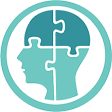How often to people cry when they come to therapy? This is hands down one of the top 5 questions I am asked when I talk about my job. Since I specialize in the treatment of anxiety and trauma people are curious how often clients cry in therapy. The answer is probably different for different clinicians and different specialties. Although clients do, at times, cry in the office, I’ve noticed people are far more likely to cry in the first few sessions.
Why the first few sessions? Usually people will cry in the first session and then less so after that. I think the main reason for this is because it can be overwhelming to face what’s been plaguing and disrupting their life. In some cases I have clients who’ve been effected for years by their anxiety and our first session is the FIRST TIME they’ve actually talked at length, out loud, about their struggles. This feeling of stress and overwhelm leaves people feeling out of control and sometimes hopeless to the point they don’t know what tells to do but cry. The GOOD NEWS is that’s where we can start making immediate progress.
WHAT TO DO WHEN YOU DON’T KNOW WHAT TO DO
When someone is in my office for the first time and is crying from the start, the first goal we have together is helping them feel more stable. Increased stability provides clarity and clarity allows you to think through the problems you’re facing. When overwhelmed the part of the brain responsible for problem solving doesn’t work as well. This means that you are less likely to be able to think clearly and make better decisions until you are able to calm down some and feel more grounded. So, what can you do to help yourself feel more grounded and in control? Try out the suggestions below to get your feet on the ground and your brain back online.
CONTROL WHAT YOU CAN CONTROL
If you’re feeling overwhelmed in the moment then your short term strategy is to do what is needed for you to feel more calm and back in control. I recommend my clients try the breathing exercises you can find here through Austin Bridges Therapy. These are all designed to help you lower your blood pressure, heart rate, and breathing so that you can shift out of a state of overwhelm and regain control. Another option that helps clients is to try grounding exercises to feel more present in the moment and not “stuck” in your head. I have a list of popular grounding techniques for download here.
LONG TERM TECHNIQUES
Short term techniques and tools are valuable but may have only short term impact on feelings of anxiety and overwhelm. If you’re looking to have more long term impact on how you’re feeling we need to look at the 3 main pillars of mental health. The three pillars are DIET, EXERCISE, and SLEEP.
DIET – MENTAL AND PHYSICAL
MENTAL – The type of information and stimulation you allow into your brain throughout the day WILL have an impact on you. Witnessing stressful events and seeing footage of upsetting or traumatic scenes can change your mood and create anxiety and stress responses in your body. Be mindful of what information you’re allowing into your life and how much negative content you are taking in. The common rebuttal I hear is that people don’t want to be “in the dark” or they want to “stay informed”. This idea makes sense to me as long as we keep it in balance. If you have a headache you wouldn’t take a handful of Tylenol. (Don’t ever take a handful of Tylenol) So pay attention to how your mood and emotions are affected by what you’re watching and reading. If you want to read more about how news impacts mood check out this TIME.com interview with Professor of Psychology Graham Davey.
PHYSICAL DIET – YOU ARE WHAT YOU EAT
It seems obvious, but there is actual science to back up the idea that you are what you eat. Studies consistently show that a balanced diet of fruits, vegetables, and lean protein can promote a happier and healthier self. A healthy diet supports healthy bacteria in your body, which impacts your mood, stress, anxiety, depression levels, and more.
Being more attune to your physical state will help you determine what your body needs. For instance, you might feel jittery or nervous in the morning you due to the hours since your last meal which can often feel just like anxiety. Try eating something first thing when you wake up (unprocessed and low in sugar). For more check out this article about morning anxiety.
EXERCISE – WORK IT OUT
Previously I’ve written about the important impact exercise can have on anxiety. (read that post here) According to the Anxiety and Depression Association of America (ADAA) “Psychologists studying how exercise relieves anxiety and depression suggest that a 10-minute walk may be just as good as a 45-minute workout.” Although these benefits weren’t permanent some studies showed significant elevation in mood with people experiencing depression after brisk exercise. In fact two Professors of Psychology (one from UT Austin) wrote a book on the benefits of exercise when treating anxiety. The book is called Exercise for Mood and Anxiety: Proven Strategies for Overcoming Depression and Enhancing Well-Being by Michael W. Otto and Jasper A.J. Smits. If you want to get started today with an exercise program recommended by the ADAA try 5×30. Jog, walk, bike or dance three to five times a week for 30 minutes.
SLEEP – TO HEAL AND RECHARGE
The National Sleep Foundation suggests that most teens and adults require 8-10 hours of sleep. Although most people know the importance of sleep did you know proper sleep helps the body heal and helps regulate emotional states? In this article from Harvard,researchers found that sleep disruption affects neurotransmitters and stress hormones which can dysregulate your mood. Want to find out ways to improve your sleep? Check out this article to get a good night’s sleep.
We all experience times of anxiety and feelings of overwhelm. Those feelings can generalize to the point they begin to impede our lives, but there are a number of actions you can take to take back control. Hopefully this post has shown the surface of the depth of actions you can take to help your anxiety throughout the day. If you feel like your anxiety is disruptive for your life and want to find out more, reach out to a therapist to find ways to discover tools to take back your life.








